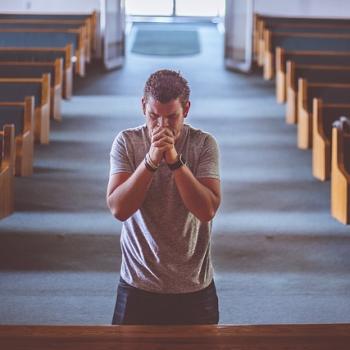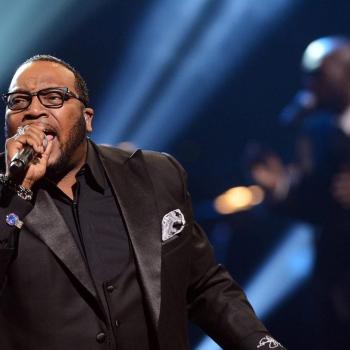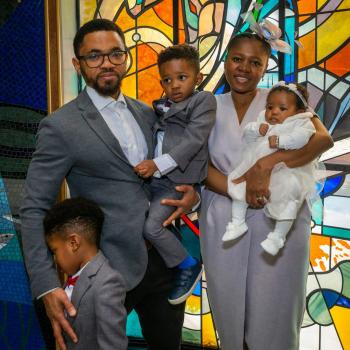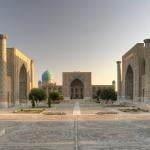What is ordination? Does the Church still need it today? Rethinking ordination, we’ll look at its power, purpose, and problems it may cause.

In my last article, I detailed my experience from my call to ministry to my license to preach, and then to my ordination. I discussed both the problems and the joys along the way. My next article will continue to investigate the challenges inherent in Southern Baptist ordination. In addition to the challenges, I will suggest some solutions to create greater accountability. Today I want to ask two simple questions: What is ordination, and does the Church need it today? These are simple questions, with not-so-simple answers.
Central Role of Clergy
Denominations disagree on many things, but most agree on the vital role of clergy in the life of the Church. Perhaps with the exception of Quakers, Christian denominations worldwide boast an exalted clergy to officiate ordinances, sanctify its sacraments, and manage its ministries. Without clergy, the Church just wouldn’t be the Church, would it?
Building on a Foundation
Many churches and denominations claim the authority of apostolic succession going back to Peter, revered as the rock upon which Jesus built his church. Other denominations might not claim such direct lineage but still connect their clergy to a great spiritual inheritance. Ephesians says the Church, or “household of God,” is…
built upon the foundation of the apostles and prophets, with Christ Jesus himself as the cornerstone; in him the whole structure is joined together and grows into a holy temple in the Lord, in whom you also are built together spiritually into a dwelling place for God.
If the Church is built on the foundation of apostles and prophets, then the walls, roofs, and pillars are those who continue that legacy as ministers, pastors, overseers, and bishops. Though the particulars of their job descriptions may vary, these ecclesiastical leaders share one thing in common. The Church has ordained each in recognition of God’s unique call to serve and lead the Church.
What is Ordination?
But what exactly is ordination? First, the word refers to God’s sovereign selection of the individual for leadership. As in, “God ordained Saul to be king of Israel.” Second, in the ecclesiastical sense, it indicates the Church’s stamp of approval, recognizing God’s call of the person to ministry. In essence, the Church is binding on earth what God has already bound in heaven. The ordinand already has God’s ordination, so now the Church grants its ordination as well.
Ordination in the Hebrew Bible
Ordination has a long history, dating back to before the existence of the church itself. Here are three key passages from the Hebrew Bible, chronicling the history of Jewish ordination:
- Exodus 28-29 – God names Aaron and his sons as a perpetual priesthood. They are given holy vestments and sacred duties. As professional clergy, ministry is to be their job and not a volunteer opportunity. Because of their permanent priesthood, they receive no property as an inheritance. Instead, their allotment is the priesthood itself. This will financially sustain them in perpetuity.
- Numbers 11 – God tells Moses to select seventy elders from among the Israelites. These will share leadership and allow Moses to fulfill his prophetic function. God takes some of the spirit he has placed on Moses and distributes it to the elders. It is more than a secular job—it is a holy office that requires the candidates to consecrate themselves for ordination.
- Numbers 27 – God has Moses ordain Joshua as his successor. This is not an oath of office for a political position, but a laying-on-of-hands ceremony where the people recognized the call God had already given to Joshua to take Moses’s place of leadership.
For more information on ordination in the Hebrew tradition, read the article, “Ordination,” by Wilhelm Bacher, Jacob Zallel Lauterbach in the Jewish Encyclopedia. This article not only examines scriptures but looks at ordination as it applies to the Sanhedrin of Israel.
Ordination in the New Testament
Following the example found in Jewish history, the early Jewish and later Gentile Church practiced ordination for its clergy. The New Testament offers scriptures indicating the need for ordination:
- Acts 6:1-7 – The Church ordains its first deacons. Because of a dispute regarding the distribution of food, the apostles decide to ordain helpers called deacons to conduct the Church’s charitable work. This ordination involves spiritual requirements, not just physical aptitude or availability. The Church confers this office through prayer and the laying on of hands.
- Acts 13:3 – The Church commissions Paul and Barnabas as missionaries. The Holy Spirit specifically names the two as apostles to take the Gospel on the road. The Church recognizes this divine call, again, through prayer and laying hands on those selected.
- 1 Timothy 4:14 – Ordination is not because a person is gifted. Instead, the laying on of hands is seen as conferring divine giftings upon a person. This is not done privately (as Samuel privately anointed King Saul). Instead, it is done publicly, by a council of elders.
- 1 Timothy 5 – Paul gives young elder Timothy guidelines for the ordination of ministers. Verse seventeen describes the role of ordained clergy as preachers and teachers. Verse eighteen allows for them to be paid for their services. Verse nineteen deals with accusations against elders, and verses twenty and twenty-one address how to discipline ministers. Finally, verse twenty-two cautions Timothy against ordaining anyone too hastily, lest they stumble because of their inexperience.
For more, read “Where in the New Testament Are “Priests” Mentioned?” at Catholic Answers. In my last article, I revealed my experience with ordination in the Southern Baptist Convention. But these scriptures and principles apply across denominations.
Ordination of All Genders
The early Church practiced ordination for men and women alike. Recognizing God’s call on people regardless of gender, the Church called female deacons and presbyters (priests) as well as male. Ministers of all genders taught, cared for the sick, and performed sacred rites until the growing patriarchy removed women from ministry. Today in conservative denominations and congregations, the ordination of women is controversial, mainly due to ignorance of history.
Problems with Ordination
As helpful as ordination is for the organization of the modern church, it must be recognized that there are six problems inherent in the concept of ordination:
- Ordination presumes that God has ordained one class of people to be leaders and another as followers. This falls under the same fallacy as the notion that the Jews are God’s chosen people. The chosen ones are greater than and all the others are less than. But God does not play favorites.
- Ordination presumes that ministry is a sacred vocation to which God calls some people, whereas secular jobs are more aligned with human planning and choice. This suggests that ministry is a superior profession to all others, allowing ministers to look down on those who perform more mundane work.
- Ordination creates a false dichotomy between clergy and laity. It forgets that all believers are called to be priests—a concept that inspires the doctrine of the Priesthood of All Believers. This teaching is held dear by many denominations, including the Southern Baptists of my upbringing.
- The existence of full-time, professional clergy as a career creates many of the same issues as career politicians. The clergy class is often so separate from the laity that ministers forget what it is like to work in secular jobs or to be treated as anything other than semi-celebrities in their own towns.
- Ordination sets up a power dynamic in which clergy members exercise spiritual authority over the laity. This creates a situation ripe for abuse of all kinds. More on this in my next article.
- Full-time, professional clergy who serve in autonomous congregationalist churches become dependent on their own church members for their salaries and housing. As a result, they often feel they cannot challenge their parishioners with fresh ideas or rebuke them too harshly when they fall astray. The mentality of “don’t bite the hand that feeds you” is alive and well among pastors of churches.
Do We Need Ordination at All?
Since ordination is so problematic, this raises the question of whether we need ordination at all. Quakers suggest that if you believe in the Priesthood of All Believers, the answer is no—the Church doesn’t need ordained clergy. And maybe they’re right—the jury’s still out. Personally, I think that there is still some place for ordination in today’s church. But sometimes I wonder if, in the Southern Baptist system where I served, the benefits don’t outweigh the drawbacks.
Still, headless people usually die—and so might the Church if it had no head. We say that the head of the Church is Jesus, and spiritually, this is true. Hopefully, the people are following Jesus closely enough that he can have some oversight, like the brain that governs the body. Besides this, the Church does need leaders to serve as talking heads who speak for the Spirit of Christ.
Yes, to keep the Church running, I suppose there must be someone to lead. I still don’t know about ordination per se, but if we are to have ministers, there must be some guardrails in place to avoid accidents and keep our heads. I invite you to my next article, where I suggest what these guardrails might look like. See you there. And, until next time, don’t forget to breathe.
For related reading, check out my other articles:
- Pastors: When the Extra Mile Turns into a Marathon
- Spiritual Abuse: Eternal Salvation by Any Means Necessary
- An Open Letter to Pastors: Child Sacrifice on Church Altars


















